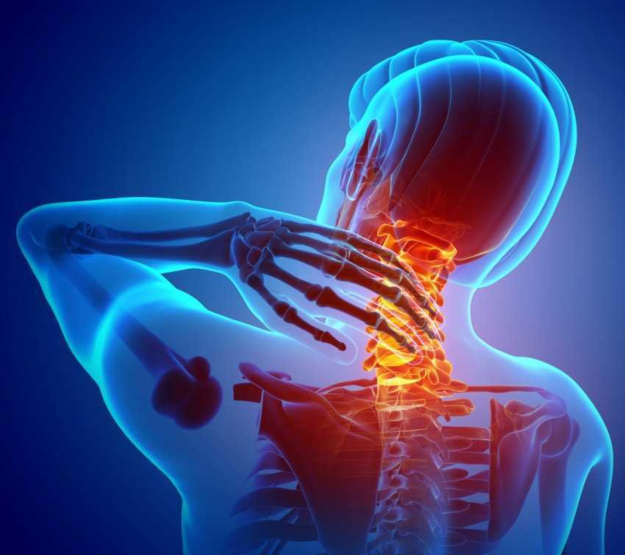4 reasons you experience annoying neck pains
While neck pains rarely leads to serious problems, they can cause a lot of discomfort

PHOTO: WOOLSTON WELLNESS CENTRE
1. Pinched nerve
 PHOTO: VANCE CHIROPRACTIC
PHOTO: VANCE CHIROPRACTICYour neck - also known as your cervical spine - is made up of several bones called the vertebrae which stack on top of each other. Each of these bones have little cushions in between them called discs. These are made up of soft centres and hard exteriors. Some people often experience a herniated disc which is when the soft part of the disc starts penetrating the hard exterior causing a tear.
Spine surgeon at the University of Cincinnati Anthony F Guanciale explains, "The disc itself bulges past its normal limits and can compress nerves leaving the spine." This can result in pain, numbness and a tingling sensation that can extend to your shoulder and arms. In most cases, rest, nonsteroidal anti-inflammatory drugs (NSAIDS) and physical therapy can provide relief. However, in serious cases, one might have to opt for surgery.
2. Strain
 PHOTO: MASTERING HEALTH AND HAPPINESS
PHOTO: MASTERING HEALTH AND HAPPINESSHaving a strain in your neck means that you might have stretched or torn a muscle or tendon. This can occur if you spend too much time hunched over your phone, computer or if you've slept at an odd angle. But it can also happen from the slightest of movement such as bending under your sofa to clean some dust bunnies.
The best way to treat a strain is to relax your neck as much as you can. Ice the area for 15 to 20 minutes every two or three hours after the pain emerges. Make sure to keep your neck as still and supported as possible. If the home remedies fail to work, surgery will help repair the torn muscles and tendons.
3. Whiplash
 PHOTO: HARVARD HEALTH
PHOTO: HARVARD HEALTHWhiplash occurs due to forceful and fast movement of your neck, especially during a car crash, sports accident or physical abuse. When you get a whiplash, several tissues of your neck are injured that induces symptoms such as stiffness, headaches, fatigue, dizziness amongst many others. These typically set within 24 hours of the injury.
Usually, ample amount of rest, applying hot or cold packs multiple times a day, over-the-counter medications and stretching helps ease the pain. However, in more severe cases, intensive treatments such as muscle relaxants or numbing injections are needed. It's best to see a doctor if you experience neck pain after an accident rather than performing a self-diagnosis.
4. Underlying health condition
 PHOTO: SPINE HEALTH
PHOTO: SPINE HEALTHApart from sprains and whiplashes, there are many health conditions that can trigger neck discomfort. Rheumatoid arthritis can cause the inflammation of the joints which can lead to painful swelling in your neck. Even meningitis can induce inflammation around your brain and spinal cord resulting in excessive pain. A type of cancer that destroys your bone tissue is responsible for compressing a nerve that might be near the tumour.
If any of these leads to weakness in your limbs or if the pain intensifies, rush to the emergency room.
Have something to add to the story? Share in the comments below.



















COMMENTS
Comments are moderated and generally will be posted if they are on-topic and not abusive.
For more information, please see our Comments FAQ